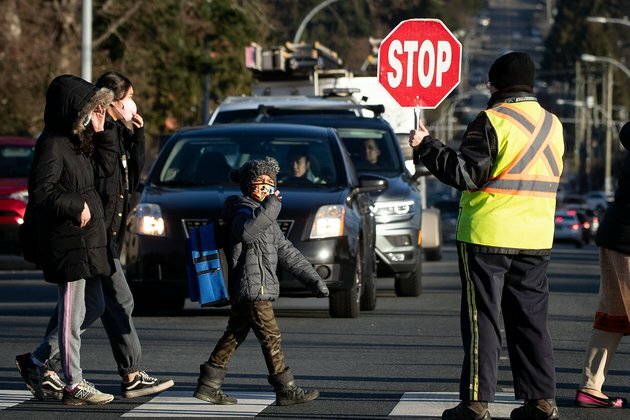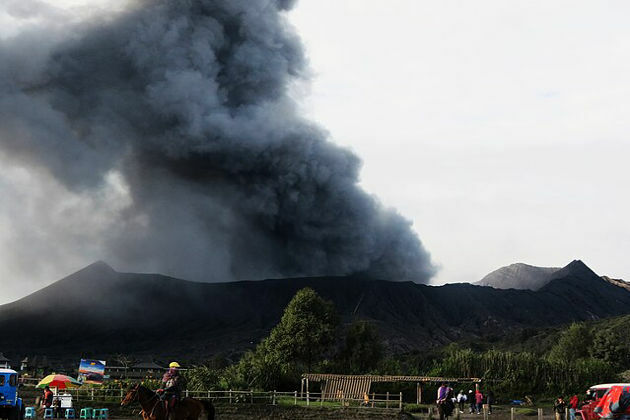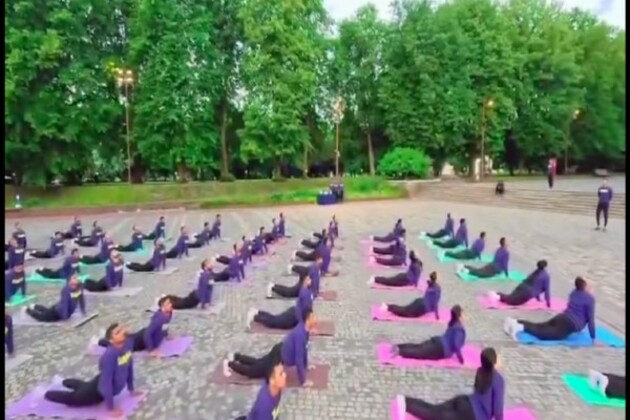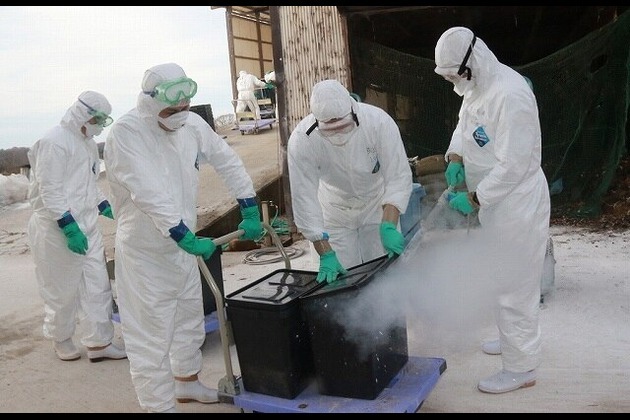Student achievement depends on reducing poverty now and after COVID-19
The Conversation
20 Apr 2021, 02:09 GMT+10

There is no doubt that COVID-19 has significantly impacted our lives, including schools and education. Temporary closures of school buildings have highlighted how factors outside school systems affect schools' capacity to meet students' needs and support academic achievement. For example, elementary schools can only successfully deliver online education if children have an adult or responsible caregiver with them or they have a reliable internet connection.
There is a large body of research that underscores the importance of particular policies that can support low socio-economic students as well as policies that align with the most effective education systems globally.
These areas include investing in quality early childhood education, providing adequate mental health and technology support to benefit children in primary and secondary school and funding for post-secondary students. Policy in all these areas can be considered social protection policies. According to UNICEF, such policy reduces "the lifelong consequences of poverty and exclusion."
Early childhood education
A national child-care strategy has been hotly debated within Canada for some time. Yet despite its detractors, we do know that countries such as Finland - where all children under the school age are provided with the option of early childhood education and care - are consistently lauded globally for high student achievement and post-secondary attendance.
In general, countries with the most family-friendly policies, such as paid maternity/paternity leave and subsidized or free early childhood education, recoup these initial investments through a better-educated citizenry. They also tend to have smaller achievement gaps between the highest and lowest performing students, or are trending in a positive direction - a result that bodes well for policy-makers interested in promoting equity.
Mental health, technology infrastructure
COVID-19 has accentuated the challenges that many students face in kindergarten to Grade 12. The shift to remote learning and the increased need for mental health supports have impacted children and families.
Added to this, those children who lack access to appropriate technology or a stable internet connection or a quiet place to study at home face even further unprecedented hardships.
Not surprisingly, these types of challenges are exacerbated for students from low socio-economic backgrounds. Their families require direct social protection policy interventions.
In Canada, power over social policy is divided between the federal and provincial governments, but municipalities also play an important role in the fight against poverty. They provide the infrastructure that ensures that students and their families have an opportunity to succeed: social housing, emergency shelters, subsidized child care, transit passes, and library and recreation services.
Some municipalities have advocated for issues around reducing poverty, affordable housing and homelessness, and broadband connectivity for smaller communities, and helped put these on the national agenda.
Higher education
Canada boasts one of the highest post-secondary enrolment rates in the world. Indeed, the proportion of adults aged 25 to 64 who completed college or university increased to 57 per cent in 2017 from 46 per cent in 2005, the highest rate among OECD countries.
While these results should be celebrated, the ongoing challenges posed by COVID-19 and the child poverty gap, which has increased incrementally between 2015 and 2018, should cause urgent concern. These factors will directly threaten the prospect of university and college attendance for students from lower socio-economic homes and families.
Read more: Canada's woeful track record on children set to get worse with COVID-19 pandemic
Even prior to the pandemic, the significant decrease in government funding for Canadian universities and colleges over the last decade has resulted in increased costs and student debt, and deterred many students from pursuing a post-secondary education. The latter is in stark contrast to Nordic countries such as Finland, Norway, Sweden, Denmark and Iceland - where post-secondary education is free or at a low cost. As a consequence, these countries are seen as desirable places for business.
While many may bemoan tax dollars being used to fund post-secondary students, the economic and social benefits are clearly justified - particularly given the increasing human capital demands of a knowledge economy.
The negative effects of reduced government funding have been growing for some time in Canada. We must continually monitor and address how financial challenges exacerbated by COVID-19 in the long-term affect post-secondary education.
It is essential for governments to adopt effective policies far beyond schooling to ensure that the most vulnerable student populations are given a realistic opportunity to excel from kindergarten to Grade 12 and in post-secondary education settings.
Authors: Louis Volante - Professor of Education, Brock University | Don A. Klinger - Pro Vice-Chancellor of Te Kura Toi Tangata Division of Education; Professor of Measurement, Assessment and Evaluation, University of Waikato | Livianna Tossutti - Associate professor, Department of Political Science, Brock University | Melissa Siegel - Professor of Migration Studies and Head of Migration Studies at the Maastricht Graduate School of Governance and UNU-MERIT, United Nations University 
 Share
Share
 Tweet
Tweet
 Share
Share
 Flip
Flip
 Email
Email
Watch latest videos
Subscribe and Follow
Get a daily dose of Malaysia Sun news through our daily email, its complimentary and keeps you fully up to date with world and business news as well.
News RELEASES
Publish news of your business, community or sports group, personnel appointments, major event and more by submitting a news release to Malaysia Sun.
More InformationSoutheast Asia
SectionVolcanic ash grounds flights to Indonesia, disrupts travel to Bali
LEMBATA, Indonesia: Indonesia's Mount Lewotobi Laki Laki erupted dramatically on June 18, generating substantial ash and smoke plumes....
Investigators examining Black Boxes recovered from Air India Boeing
NEW DELHI, India: Indian investigators are examining the black boxes from a Boeing 787 Dreamliner to determine the cause of a catastrophic...
Flight recorder may reveal cause of deadly crash of Air India Boeing
NEW DELHI, India: The flight data recorder from the crashed Air India plane was found on June 13. This vital discovery may help investigators...
Nepal Police Search for Journalist Who Reported on Political Family's Business
In Nepal's latest attempt to silence online speech, police are trying to arrest a well-known journalist who published on his YouTube...
GERMANY-DUISBURG-ASEAN EXPRESS-RETURN LEG-LAUNCH
(250622) -- DUISBURG, June 22, 2025 (Xinhua) -- This photo shows a scene of the promotion on ASEAN Express services in Duisburg, Germany,...
Crew of stealth frigate 'Tamal' celebrates International Yoga Day at iconic Kant Cathedral in Russia
Moscow [Russia], June 22 (ANI): The crew of the soon-to-be-inducted stealth frigate Tamal celebrated the International Day of Yoga...
Business
SectionNext-gen weight-loss drugs aim to cut fat, spare muscle
WASHINGTON, D.C.: As the global weight-loss market explodes, drugmakers are now racing to solve a less visible problem: protecting...
Amazon’s Zoox unveils plan to build 10,000 robotaxis a year
HAYWARD, California: In a significant step toward its commercial debut, Amazon-owned Zoox has unveiled its first factory dedicated...
Brazil aims to restart poultry trade after bird flu clearance
SAO PAULO, Brazil: Brazil is taking confident steps to restore its dominance in global poultry exports after declaring its commercial...
U.S. stocks restricted by tensions in Middle East
NEW YORK, New YorK - U.S. stocks closed mixed on Friday, with gains and losses modest, as investors and traders weighed up the escalation...
US consumers cut back after early surge ahead of Trump tariffs
WASHINGTON, D.C.: Retail sales dropped sharply in May as consumer spending slowed after a strong start to the year, primarily due to...
Mitsubishi joins automakers raising prices after import tariffs
WASHINGTON, D.C.: Mitsubishi Motors is the latest automaker to raise prices in the United States, joining a growing list of car companies...













